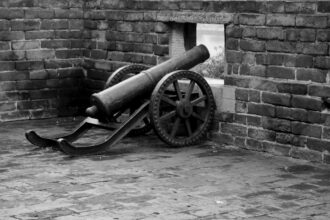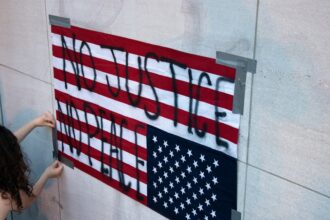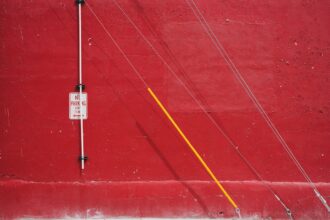Covert operations have long been a critical component of national security strategies employed by governments around the world. These clandestine activities, often shrouded in secrecy, are designed to achieve specific objectives without revealing the identity of the actors involved. The nature of covert operations allows states to engage in actions that can influence political outcomes, gather intelligence, or disrupt adversaries without the overt use of military force.
This strategic ambiguity provides nations with a tactical advantage, enabling them to navigate complex geopolitical landscapes while minimizing the risk of direct confrontation. The allure of covert operations lies in their ability to operate under the radar, often employing unconventional methods and tactics. From espionage to sabotage, these operations can take many forms, each tailored to meet the unique demands of a given situation.
As global conflicts evolve and new threats emerge, the importance of these shadowy endeavors continues to grow, prompting nations to refine their approaches and enhance their capabilities. Understanding the history and evolution of covert operations is essential for grasping their current significance in international relations.
Key Takeaways
- Covert operations are secret missions carried out by government agencies or military forces to achieve specific political or military objectives.
- The Shadow Army, also known as the Special Forces or Special Operations Forces, has a long history dating back to ancient times.
- Special Forces play a crucial role in covert operations, conducting missions such as reconnaissance, sabotage, and unconventional warfare.
- Covert operations played a significant role in the Cold War, with both the United States and the Soviet Union using clandestine tactics to gain strategic advantages.
- The Shadow Army has been heavily involved in the War on Terror, conducting missions to capture or eliminate high-value targets and gather intelligence in counterterrorism efforts.
History of the Shadow Army
The concept of a “Shadow Army” can be traced back to various historical precedents where nations have relied on clandestine forces to achieve strategic goals. During World War II, for instance, the Allies employed covert operations extensively, utilizing special units like the British Special Operations Executive (SOE) and the American Office of Strategic Services (OSS). These organizations were tasked with conducting sabotage, espionage, and guerrilla warfare against Axis powers, laying the groundwork for modern covert operations.
The success of these missions demonstrated the effectiveness of unconventional warfare and highlighted the need for specialized forces capable of operating in secrecy. In the post-war era, the Cold War marked a significant turning point in the development of covert operations. The United States and the Soviet Union engaged in a protracted struggle for global influence, often resorting to clandestine activities to undermine each other’s efforts.
The establishment of organizations such as the CIA and KGB facilitated a new era of espionage and covert action, with both superpowers employing a range of tactics from propaganda to assassination. This period solidified the role of covert operations as a fundamental aspect of statecraft, shaping the strategies employed by nations in their pursuit of power and security.
The Role of Special Forces

Special Forces play a pivotal role in executing covert operations, often serving as the backbone of a nation’s clandestine capabilities. These elite units are specifically trained to conduct high-stakes missions that require precision, adaptability, and discretion. Their training encompasses a wide array of skills, including advanced combat techniques, intelligence gathering, and cultural awareness, enabling them to operate effectively in diverse environments.
Moreover, Special Forces often work in tandem with intelligence agencies to gather critical information that informs strategic decision-making.
Whether conducting counter-terrorism operations or engaging in humanitarian missions, Special Forces exemplify the multifaceted nature of modern warfare. Their presence on the ground can significantly alter the dynamics of a conflict, providing governments with options that extend beyond traditional military engagement.
Covert Operations in the Cold War
| Operation Name | Year | Objective | Outcome |
|---|---|---|---|
| Operation Ajax | 1953 | Overthrow Iranian Prime Minister | Successful, Shah Reinstated |
| Operation PBSUCCESS | 1954 | Overthrow Guatemalan President | Successful, Castillo Armas Installed |
| Operation Mongoose | 1961 | Destabilize Cuban Government | Unsuccessful, Cuban Missile Crisis |
The Cold War era was characterized by an intense rivalry between the United States and the Soviet Union, leading to an unprecedented expansion of covert operations. Both superpowers engaged in a series of clandestine activities aimed at undermining each other’s influence across the globe. The CIA’s involvement in coups, such as the overthrow of Iran’s Prime Minister Mohammad Mossadegh in 1953 and Chile’s President Salvador Allende in 1973, exemplified how covert operations were used as tools of foreign policy.
These actions not only reshaped political landscapes but also had lasting repercussions on international relations. In addition to regime change, espionage became a hallmark of Cold War covert operations. Intelligence agencies invested heavily in gathering information on enemy capabilities and intentions, leading to a complex web of spies and informants operating behind enemy lines.
The establishment of spy networks and counterintelligence measures became essential components of national security strategies. The Cold War underscored the significance of covert operations as both a means of deterrence and a method for achieving strategic objectives without resorting to open conflict.
The Shadow Army in the War on Terror
The events of September 11, 2001, marked a paradigm shift in global security concerns, leading to an intensified focus on counter-terrorism efforts. In this context, the concept of a “Shadow Army” took on new dimensions as nations sought to combat non-state actors operating across borders. Covert operations became integral to the War on Terror, with Special Forces conducting missions aimed at dismantling terrorist networks and capturing high-value targets.
The use of intelligence-driven operations allowed governments to strike decisively while minimizing collateral damage. The Shadow Army’s role in this ongoing conflict has been characterized by its adaptability and responsiveness to emerging threats. Operations in Afghanistan and Iraq showcased the effectiveness of Special Forces in conducting targeted strikes against terrorist leaders and infrastructure.
Additionally, collaboration with local forces has become a hallmark of these efforts, as nations recognize the importance of building partnerships to address complex security challenges. The War on Terror has solidified the Shadow Army’s position as a critical player in contemporary warfare.
Black Ops and Special Missions

Black operations, often referred to as “black ops,” represent some of the most secretive and controversial aspects of covert operations. These missions are typically conducted without official acknowledgment or oversight, allowing governments to pursue objectives that may not align with public policy or ethical standards. Black ops can encompass a wide range of activities, from sabotage and assassination to psychological warfare and disinformation campaigns.
The lack of transparency surrounding these operations raises significant ethical questions about accountability and governance. Special missions conducted under the banner of black ops often involve high-risk scenarios where success is paramount. The execution of such missions requires meticulous planning and coordination among various agencies, including intelligence services and military units.
While these operations can yield significant strategic advantages, they also carry inherent risks that can lead to unintended consequences. The potential for collateral damage or diplomatic fallout underscores the need for careful consideration when engaging in such clandestine activities.
The Use of Drones and Cyber Warfare
In recent years, advancements in technology have transformed the landscape of covert operations, particularly through the use of drones and cyber warfare. Unmanned aerial vehicles (UAVs) have become essential tools for conducting surveillance and precision strikes against targets without risking human lives on the ground. Drones enable governments to gather real-time intelligence while executing missions with minimal visibility.
This capability has revolutionized how nations approach counter-terrorism efforts and has raised questions about sovereignty and ethical implications. Cyber warfare has emerged as another critical dimension of modern covert operations. Nations increasingly rely on cyber capabilities to disrupt adversaries’ infrastructure, steal sensitive information, or influence public opinion through disinformation campaigns.
The anonymity afforded by cyber operations allows states to engage in activities that would be politically untenable if conducted through traditional means. As cyber threats continue to evolve, governments must adapt their strategies to address this new frontier while grappling with issues related to privacy and security.
Controversies and Ethical Concerns
The realm of covert operations is fraught with controversies and ethical dilemmas that challenge conventional notions of morality and legality. Actions taken under the guise of national security often raise questions about human rights violations, accountability, and transparency. For instance, drone strikes targeting suspected terrorists have faced criticism for their potential to cause civilian casualties and violate international law.
The lack of oversight surrounding these operations can lead to abuses of power and undermine public trust in government institutions. Moreover, black ops conducted without congressional approval or public knowledge further complicate discussions about ethical governance. The potential for overreach exists when governments operate outside established legal frameworks, leading to calls for greater oversight and accountability mechanisms.
As societies grapple with the implications of covert operations on democratic values, it becomes increasingly important to strike a balance between national security interests and ethical considerations.
The Future of Covert Operations
As global dynamics continue to shift, the future of covert operations will likely be shaped by emerging threats and technological advancements. The rise of non-state actors, cyber warfare capabilities, and geopolitical tensions will necessitate innovative approaches to clandestine activities. Governments may increasingly rely on hybrid strategies that combine traditional military tactics with unconventional methods to address complex security challenges effectively.
Furthermore, as public awareness grows regarding the implications of covert operations, there may be increased pressure for transparency and accountability. Citizens are becoming more engaged in discussions about national security policies, demanding that governments justify their actions in an era where information is readily accessible. Balancing operational secrecy with public accountability will be crucial for maintaining legitimacy in an increasingly interconnected world.
Oversight and Accountability
The need for oversight and accountability in covert operations has never been more pressing. As governments engage in clandestine activities that can have far-reaching consequences, mechanisms must be established to ensure that these actions align with legal frameworks and ethical standards. Legislative bodies play a vital role in providing oversight by scrutinizing intelligence agencies’ activities and ensuring that they operate within established guidelines.
Additionally, independent watchdog organizations can contribute to holding governments accountable for their actions in covert operations. By promoting transparency and advocating for ethical practices, these entities can help mitigate potential abuses while fostering public trust in national security efforts. As societies navigate the complexities of modern warfare, establishing robust oversight mechanisms will be essential for ensuring that covert operations serve legitimate national interests without compromising fundamental values.
The Shadow Army’s Impact on Global Politics
The Shadow Army’s influence on global politics is profound and multifaceted. Covert operations have reshaped international relations by enabling states to pursue strategic objectives without direct confrontation while simultaneously raising ethical concerns about accountability and governance. As nations continue to grapple with evolving threats and technological advancements, understanding the implications of these clandestine activities becomes increasingly vital.
The legacy of covert operations is one marked by both successes and failures—each shaping the geopolitical landscape in significant ways. As governments navigate this complex terrain, they must balance national security interests with ethical considerations that reflect democratic values. Ultimately, the future trajectory of covert operations will depend on how societies choose to engage with these shadowy endeavors while striving for transparency and accountability in an ever-changing world.
In exploring the intricate dynamics of covert operations and clandestine military activities, the article “The Shadow Army of the United States” delves into the hidden forces that operate beyond the public eye. For those interested in further understanding the complexities of military strategies and the unseen elements that influence global power structures, a related article can be found on the same platform. This piece provides additional insights into the strategic maneuvers and the often-unseen aspects of military operations. To read more about these intriguing topics, you can visit the related article on In The War Room.
WATCH THIS! From Tehran to Blackwater: The Real Story
FAQs
What is the shadow army of the United States?
The shadow army of the United States refers to the network of private military and security contractors that work alongside the official military forces. These contractors provide a range of services including combat support, logistics, and security.
How large is the shadow army of the United States?
The exact size of the shadow army is difficult to determine, but it is estimated that there are tens of thousands of private military and security contractors working for the United States government around the world.
What roles do private military and security contractors play in the shadow army?
Private military and security contractors play a variety of roles in the shadow army, including providing security for government officials and facilities, conducting intelligence gathering, and providing logistical support for military operations.
What are some notable private military and security contractors in the shadow army?
Notable private military and security contractors in the shadow army include companies like Blackwater (now known as Academi), DynCorp, and Triple Canopy. These companies have been involved in a range of military and security operations around the world.
What are the controversies surrounding the shadow army of the United States?
The use of private military and security contractors has been controversial, with concerns raised about their accountability, transparency, and adherence to international law. There have been incidents of misconduct and human rights abuses involving contractors, leading to calls for greater oversight and regulation of their activities.




